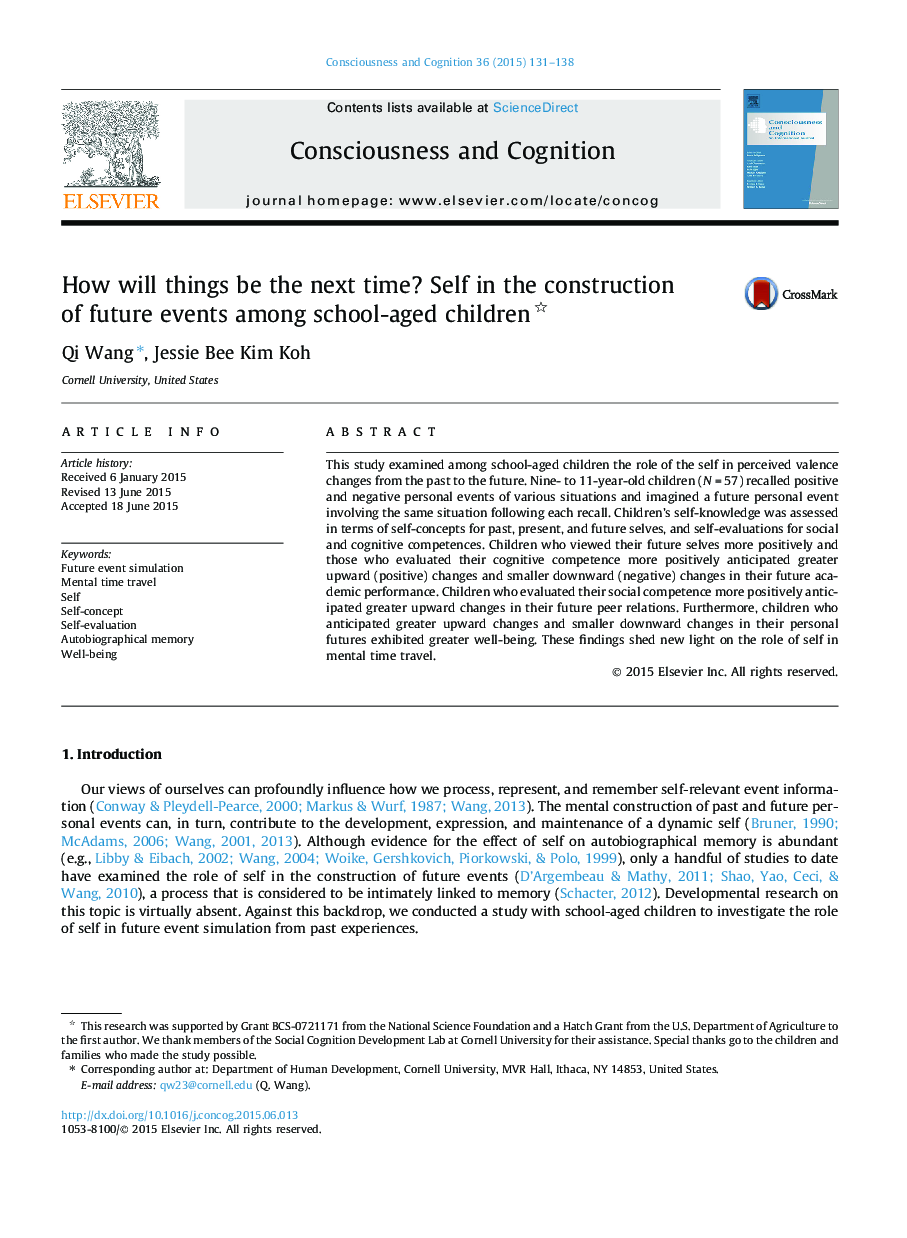| Article ID | Journal | Published Year | Pages | File Type |
|---|---|---|---|---|
| 7289045 | Consciousness and Cognition | 2015 | 8 Pages |
Abstract
This study examined among school-aged children the role of the self in perceived valence changes from the past to the future. Nine- to 11-year-old children (NÂ =Â 57) recalled positive and negative personal events of various situations and imagined a future personal event involving the same situation following each recall. Children's self-knowledge was assessed in terms of self-concepts for past, present, and future selves, and self-evaluations for social and cognitive competences. Children who viewed their future selves more positively and those who evaluated their cognitive competence more positively anticipated greater upward (positive) changes and smaller downward (negative) changes in their future academic performance. Children who evaluated their social competence more positively anticipated greater upward changes in their future peer relations. Furthermore, children who anticipated greater upward changes and smaller downward changes in their personal futures exhibited greater well-being. These findings shed new light on the role of self in mental time travel.
Related Topics
Life Sciences
Neuroscience
Cognitive Neuroscience
Authors
Qi Wang, Jessie Bee Kim Koh,
